12 Creatives Share Thoughts On The Relationship Between Psychology and Creative Medium
Sometimes mental or physical health symptoms require a change in medium or in the scale of or approach to a favorite medium ...
I work with artists/writers/creatives to help them understand the relationship of health to creativity in their own lives in order to achieve holistic wellness and success.
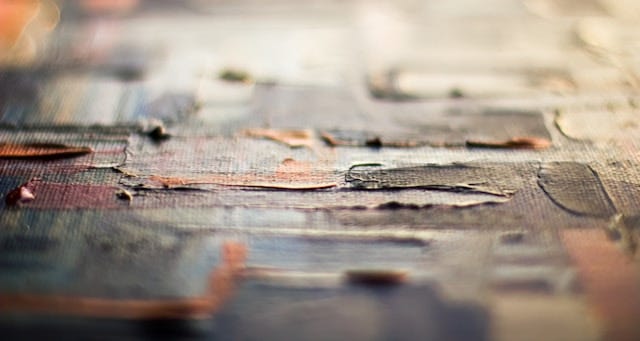
These are all excerpts from interviews that I’ve previously shared here, providing insight into the myriad ways that what’s going on in the brain, body and life impacts what we create.
I have been honored and humbled to interview hundreds of creatives across different mediums over the years. One of the things that interests me is how mediums change as a direct result of symptoms of mental and/or physical health. I don’t think that this is positive or negative, although we may experience it as such in the moment, but instead think it is helpful to understand this as a part of the larger picture of a creative life.
In these interview excerpts, some of the things that we discover about the ways the impact on medium might show up include:
Adaptation and Response to Health and Emotions:
Health-Induced Adaptations: Changing mediums and processes to accommodate physical health conditions.
Emotional Relief and Comfort: Using different art forms for emotional relief and finding comfort in tactile experiences.
Control and Self-Discovery: Using art to counterbalance constraints in life and discovering new creative preferences during isolation.
Challenges and Pressures:
Financial and Self-Doubt Challenges: Guilt or self-criticism when purchasing art supplies due to doubts about one's skills.
Perfectionism and Exploration Anxiety: Fear of trying new mediums due to a lack of patience and self-compassion.
Contradictory Activities: Engaging in activities that provide both satisfaction and stress, like gardening.
Creative Preferences and Processes:
Digital vs. Analog Preferences: Preferences for digital or analog methods to overcome creative blocks.
Compulsive and Impulsive Creation: Creating art impulsively during distress, often leading to unsatisfying results.
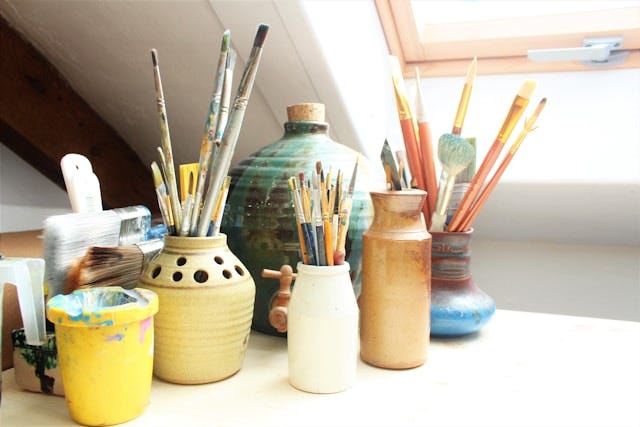
Here are the interview excerpts as well as links to all of the full interviews …
Let’s start with
, whose entire interview really sheds light on this topic.An excerpt from Helen:
"I think this is the history of my entire career - "then I had to change my medium (again) because of health."
I really just blurted that comment out, because I was going through such an intense time with my health blocking me from making art. It was so painfully current for me that I was seeing everything in terms of health.
Now that I have had to step back and think through it, I realized there were always so many layers to each change of medium, and health was usually the final push.
My current way of working - that I am having to let go of - is to use very, very big brushes and paint a single brush stroke over as large a surface as I can manage, in watercolor or ink.
From Bunni:
“I would love it if I didn’t hate myself a bit each time I bought art supplies. While drawing does make me feel like I’m capable of being more than an irrelevance in life, things can reach a heavy monetary point that makes my brain rushed with thoughts of why I should have never wasted money on something that it doesn’t believe I hold skill in.”
From
:“When I was struggling during the pandemic - writing felt impossible, for a while - I turned to painting. I painted and drew a lot as a child, but I was a rabid perfectionist and never felt I was “good” enough, so I abandoned it. Going back to that impulse has been healthy for me, and gave me a different way to express myself when my words failed me.”
From
:“I would say I definitely feel anxious and intimated to explore outside of my current mediums for fear that I wouldn't be patient or loving enough to myself to learn or explore a new medium. I tend to not be patient or compassionate when I'm learning something new. I want to be perfect at it and when I'm not, I beat myself up. I actually really want to explore so many different mediums, but I am very fearful about it all.”
From
:“I'm very tactile. Working with materials I can touch and sort through is comforting to me.I think my very favorite things to touch and handle are my beads, charms, and so on. I have a LOT, and I use various materials (mostly glass and stone.) Just the variety of textures and colors is very comforting, and sorting through these things sparks all kinds of ideas. It's the same with fabric. I just love the planning and design phase of a project, where I'm exploring possibilities. It's like a conversation, really.”
From
:“I always prefer to write on a laptop, rarely do I even take notes by hand. I enjoy the feeling of typing. I've grown up in the digital age, so it's something that just feels natural as well as satisfying. Just the sound of the keys being punched means I'm in the place I prefer to be. But now that I think about it, perhaps I should try writing by hand whenever I am sitting at my desk struggling to get the words typed out.”
From
:“Well, at this moment it’s kind of stressing me out because the garden is a mess and I’m not dealing with it. It’s been too hot to work in the garden and this time of year it gets blowsy and out of hand and I can SEE the weeds getting worse and worse and the cutting back that needs doing, and the paths are overgrown etc etc, but if the weather is nice I want to just be out and sitting and enjoying it, not working in it! So I enjoy gardening in the late autumn, winter and early spring when it’s not running away from me, and I can see what I’m doing. I like control (surprise!) and so the garden being out of control makes me start to feel out of control and that’s one of the things I have to be very aware of. So, gardening is more of the contradiction activity for me, that you mention above – the tension activity. It makes me feel good, the end effect is so worthwhile, I love the sense of wrenching control back, I love to see it, I love to be out in it, but I don’t really like DOING it. And I don’t have spare funds to get someone in to help with it. I have to make myself get out there and weed or dig or prune. I’m always glad I did, but I don’t run towards it in the same way as I do writing. I don’t think I’ve thought about that before, so articulating that is interesting for me too – I shall probably write about this realisation of the inherent tension in gardening for me! Control versus out of control!”
From
:“I was aware that the law job was squishing me and my instinctive reaction against that was to insist that I expanded in the one area I was in control of - my art. I decided to move from textile art, in which I had been using some acrylic paint on cotton to learning full-on acrylic painting. I had not been writing much all the time I was in that job but the need to warn others and express what had happened to me drew me back gradually to my words.”
From
:“As the Covid-19 lockdowns began, I resolved to spend time confined to my flat writing new music for my band. Weeks turned to months and I read of others in music feeling the sting of the industry grinding to a halt. I found a selfish sense of relief. The pandemic had become my excuse. I didn't have to struggle to write songs or confront my creative self-doubt.
As a loquacious person and kinetic on stage, I am often considered an extrovert. The pandemic brushed away that crusty layer to uncover an introvert in hiding. My life made sense. I live a lot of it in my head, planning, sketching, and scheming. Working with others had become more difficult over time, and I recognised the ease with which I was now working on my own. In the autumn of 2020, my partner suggested I take her old Zenit camera for a walk and so I took my first steps back toward photography again. On the street, surrounded by people, I could nevertheless work alone. Street photography allows me the isolation to work where I felt comfortable. … These pressures fed my anxieties and, via a long and winding road, led me to therapy. When aggravated by the pandemic, it was clear I needed to make a change, and photography was lurking to tempt me back. So told by someone I trust and admire, I am a stronger photographer than a songwriter anyway. I've never been sure if that was a compliment. Nevertheless, for the first time in a decade, I feel relaxed and comfortable in my creative work. I have moments of impostor syndrome, but my renewed confidence keeps it at bay.”
From
:“I’m still learning to break out of the idea of my writing needing to be perfect; I just have to like it enough to share it with the world. High school and college are why my best work is written on paper first and then typed. Due to high school, college, and professional settings, I feel resistant when sitting in front of a blank screen. The process of typing anything creative feels forced to me. So now, when it’s time to write creatively, I begin on paper. Sometimes I’ll mix doodles with words to help me express myself to get my point across. That’s how I approach all of my creative work, and it’s liberating. I’m thankful for my high school, college, and professional writing years, it has helped me to learn my writing style and it’s helped me to find my voice.”
AF: “Because I typically do art compulsively, usually when distressed or procrastinating and do not plan ahead to make art, I will be impulsive with when I add to a piece and what I will add to it, often with unsatisfying results or with materials/mediums that are harmful to the piece or myself (mixing nail polish, oil paint, alcohol, things that should not go together or be breathed in closed places).”
From
:“Words feel like they are never enough. I loong long long to be able to make my words take shape in color. I long to create images out of my words. It's very frustrating.”
If you read this far, perhaps you liked the work. The work does take work. It only continues with support, so please consider subscribing.




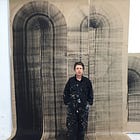
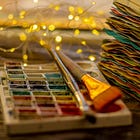

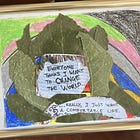

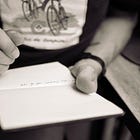

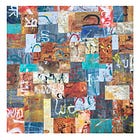
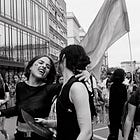

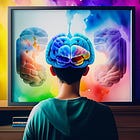
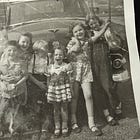
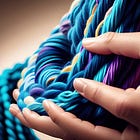
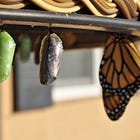
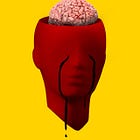
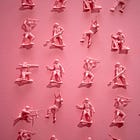
Thank you so much for the mention. I am now not painting at all, but moved to East Timor volunteering with a group reviving the local plant dyes of the country now!
Hope you are doing well, and threadstack is too
I couldn't post a photo here, I'll send it to you in the message section.